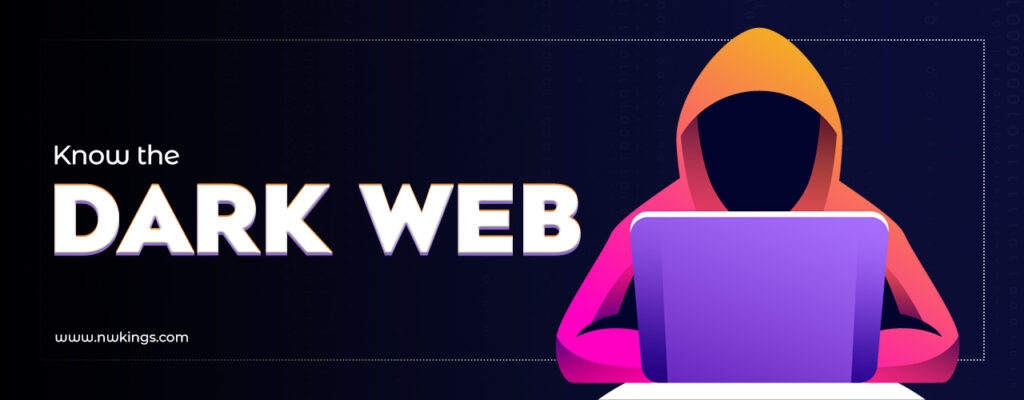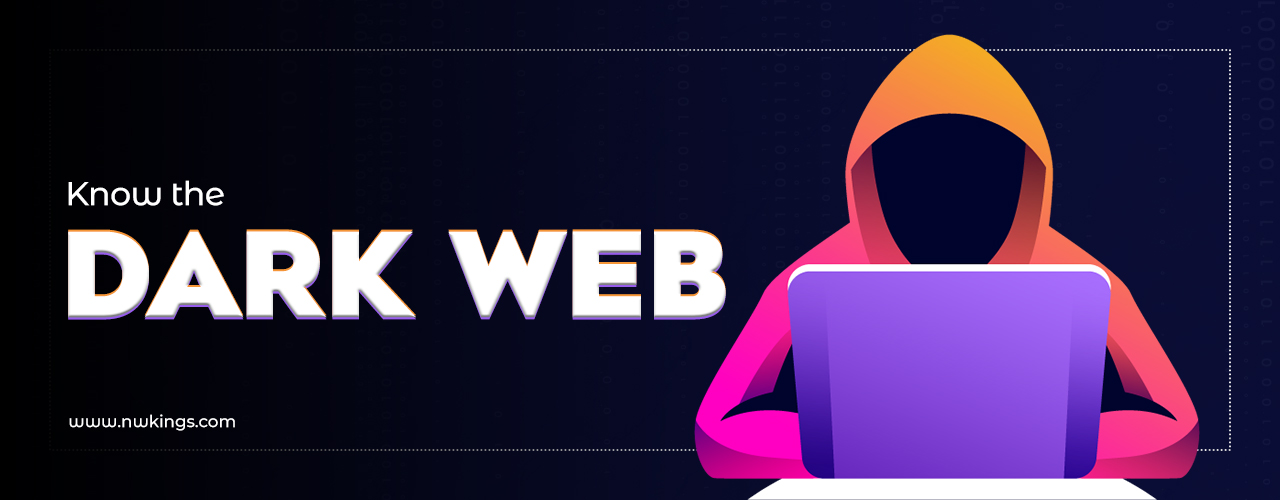
You must have come across the term Dark Web, at least once in your lifetime. But the understanding of what the dark web actually is very frail and rarely complete. We mostly have multiple notions weaved around this term. In this blog, we shall try and understand the dark web completely. The origin of the dark web, how it works and everything we need to know about the dark web so as to be able to understand its working and its repercussions further as well.
What is the Dark web?
The dark web refers to a series of websites that need special decryption and configuration tools to be accessed. The dark web is mostly used for websites that need a strict and high level of anonymity for instance illegal sales. It is effective in countries with heavy censorship and whistleblowing as well. ((Britannica))
It is important to remember that the dark web isn’t the same as the deep web. Although both are index
History of the Dark Web:
The term dark web was coined in the year 2009, though there is very less clarity around the exact emergence of the dark web. The dark web forms indeed a small part of the deep web but there is a requirement for custom software for accessing the contents. Most people use the surface web, which is open to access by a typical web browser.
We shall have a look at the entire timeline of the dark web right from its origin as known to us.
Sponsors of the Dark Web:
The dark Web was founded and funded by the U.S. federal government. The sponsorship of the dark web can be traced to different parts of the U.S. government like The Department of Defense, governments of various modernized countries and human rights organizations as well. Most sponsors fund the Tor project as they feel that this helps them in extending protection to the advocates of democracy in authoritarian states.
Timeline of the Dark Web:
1. Making of the Onion Routing: (1900’s)
The overall timeline of the dark web is covered with influences from government bodies.
‘Onion routing’ as we know it is the core principle that lets the Tor browser maintain its user’s anonymity. It was developed by the U.S. government and funded as well. Initially, the onion routing was created for protecting users in the inelegance domain by creating a space for such users by allowing them to talk freely. Onion routing was developed at the U.S. Naval Research Laboratory, by scientists Paul Syverson, Michael Reed and David Goldschlag. The U.S. Navy patented onion routing in 1998. ((IdentityIQ))
2. Tracing the origins of the Tor Project: (2002-2006)
The Tor project was created after this, it was the biggest project as yet. It was made clear that the Navy would later make the code for Tor public under a free license. Later it was turned into a project that was founded by several of the same scientists who had founded the Tor browser in the first place. The Tor we know today is by the same name as it was and still receives funding from the U.S. federal government.
Tor maintains the statement that even though they accept funding from the federal government, it does not work alongside to reveal the identities of any of its users.
3. The illegal usage of the Tor: since early 2000’s - present:
It is very clear that the dark web does maintain anonymity and also offers protection to its users, for their own use. But having said that there are multiple illegal purposes that people use the dark web for. The dark web has enabled the flourishing of black markets, particularly easier. The transactions can range from weapon purchase, and selling drugs to illicit pornography to human trafficking.
The Tor browser is known for maintaining the anonymity of its users but at a certain point when the size of a site gets big enough, it is needless to say that law enforcement will pretty much always find a way to infiltrate that site at the earliest possible.
One instance of this is the creation of the silk road by Ross Ulbricht:
Silk Road: It is defined as the online black market where users are free to buy and sell illicit goods maintaining anonymity.
“I created Silk Road because I thought the idea for the website itself had value, and that bringing Silk Road into being was the right thing to do. I believed at the time that people should have the right to buy and sell whatever they wanted so long as they weren’t hurting anyone else… The Silk Road was supposed to be about giving people the freedom to make their own choices, to pursue their own happiness, however they individually saw fit.”
– Excerpt from Ross Ulbricht’s letter to Judge Katherine Forrest prior to his sentencing ((IdentityIQ))
After the Silk Road was seized, a huge number of sites similar in nature emerged. A few of those sites which were copies were instantly seized after the seizing of the Silk Road. But they are replaced time and again. It is pretty clear that continuous sites are being created and will continue to be replaced.
Criminal and antisocial activities tend to be a major part of dark web activity. This is an undeniable reality which often stirs debate. The constant debate about whether the dark web should exist or not is an ongoing one. Detractors say that the online anonymity that the dark web provides is an encouraging factor for criminality and further it makes law enforcement difficult and also causes a delay in law enforcement. Whereas the advocates defend the dark web as one of the last resorts against any form of oppressive governments and communities as well.
In spite of the high profile of engagement in the dark web it only takes up a small vanishibale portion of the entire World Wide Web. It still poses a big threat as hacking is a common activity these days and hackers often leak data on the dark web.
For instance, Thales recently revealed that hackers had released their data on the dark web.
‘Thales said this week that the Russian-speaking extortion and ransomware group had claimed to have stolen some of its data, with plans to publish it on Nov. 7.’ ((Reuters))
Hence Cybersecurity is Needed:
It is for this same reason the need for cyber security is getting elevated even more. As with evolving times, the need to stay ahead of hackers is even more now than ever. For the same studying cyber security is also essential, as the professionals vary with this can protect themselves and others against hacking.



